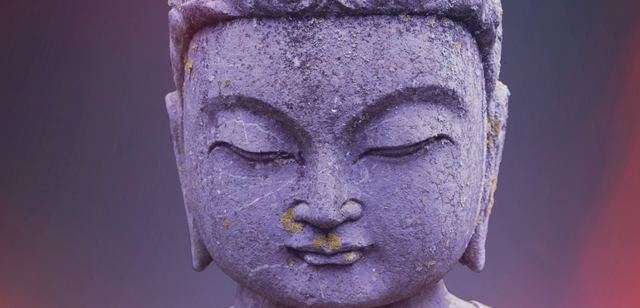
I've been studying Buddhism for several years and was inspired to share this story. Please forgive my handwriting, I have written the words below the sketches for reference :)
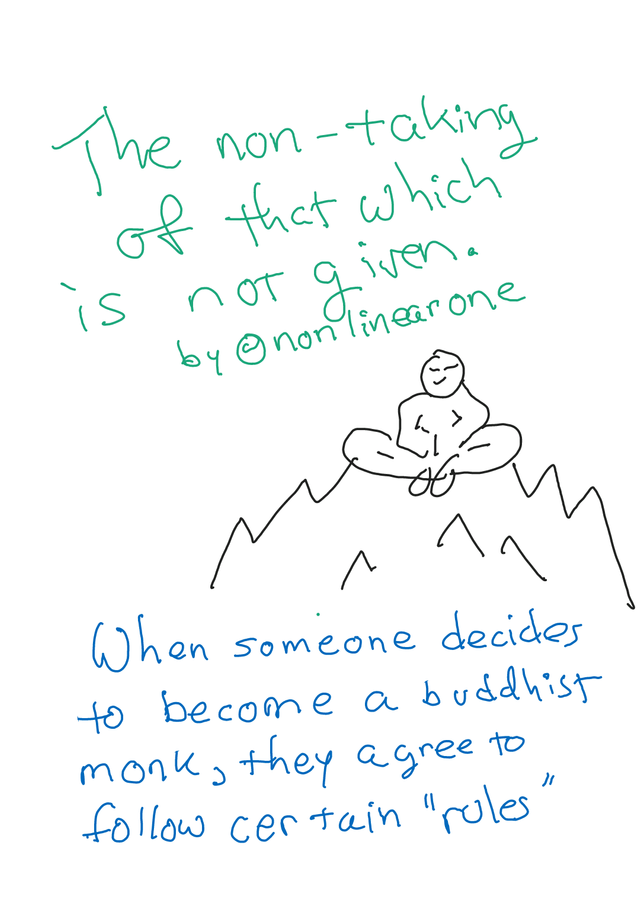
The non-taking of that which is not given.
When someone decides to become a buddhist monk, they agree to follow certain "rules."
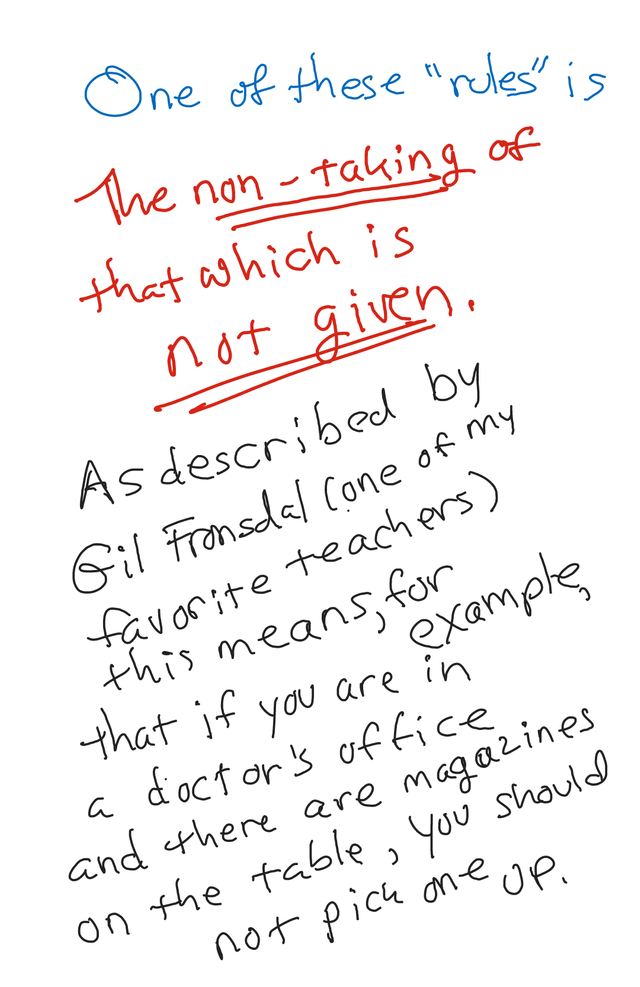
One of these "rules" is the non-taking of that which is not given.
As described by Gil Fronsdal (one of my favorite teachers) this means, for example, that if you are in a doctor's office and there are magazines on the table, you should not pick one up.
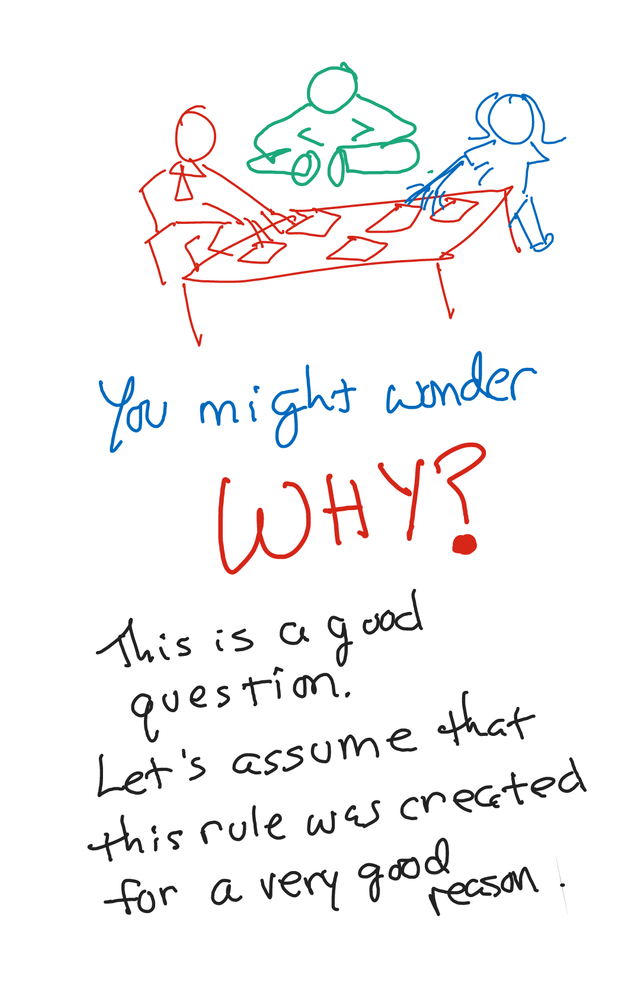
You might wonder: WHY?
This is a good question. Let's assume that this rule was created for a very good reason.
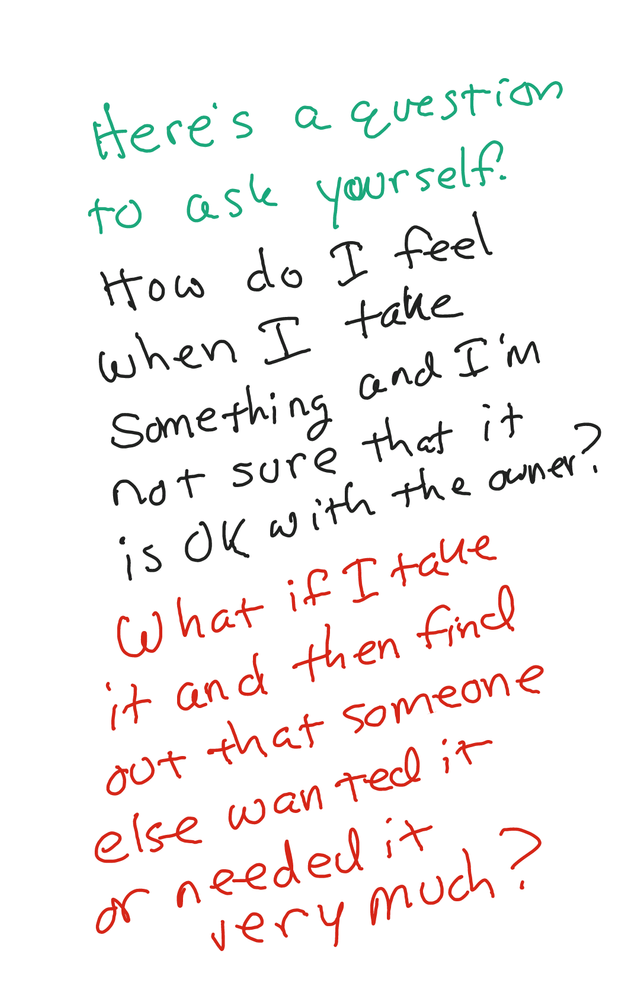
Here's a question to ask yourself. How do I feel when I take something and I'm not sure that it is OK with the owner?
What if I take it and then find out that someone else wanted it or needed it very much?
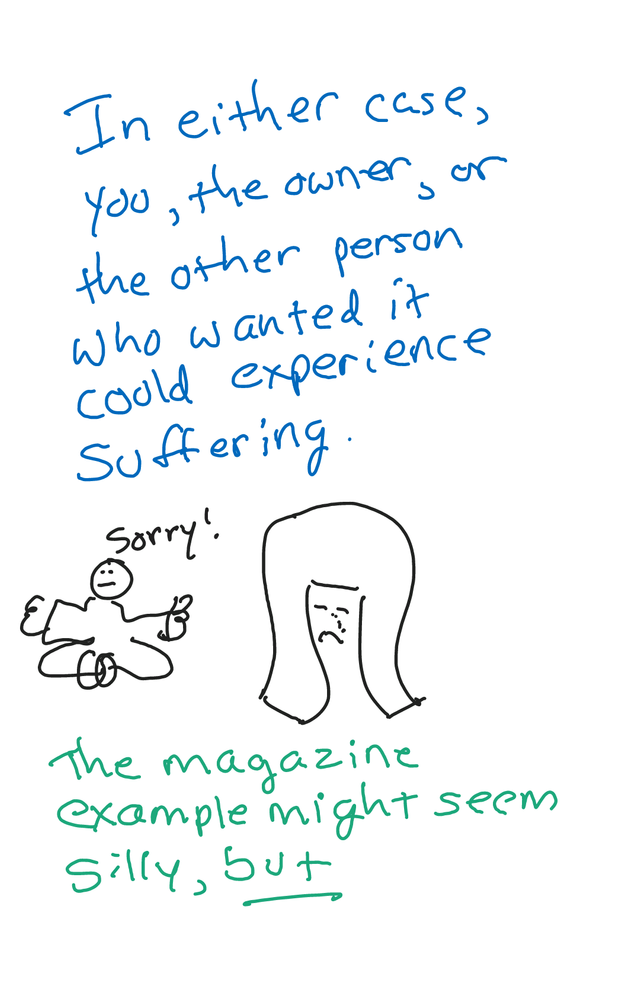
In either case, you, the owner, or the other person who wanted it could experience suffering.
The magazine example might seem silly, but...
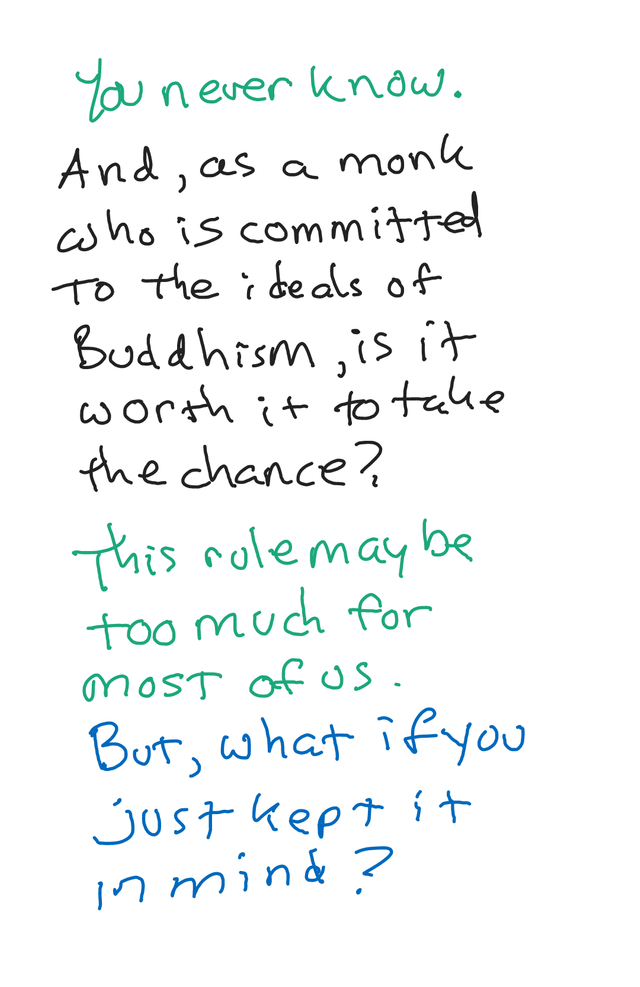
You never know. And, as a monk who is committed to the ideals of Buddhism, is it worth it to take the chance?
This rule may be too much for most of us. But, what if you just keep it in mind?
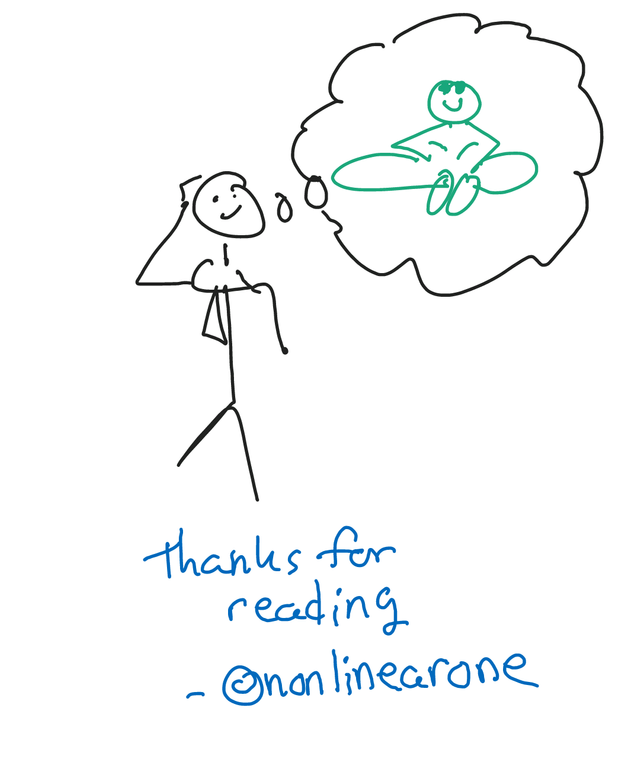
Thanks for reading.
"Art" and text created by the author for SteemIt on Aug 23rd, 2016.
Top image credit: Public domain (modified)
All other images created by the author.
I highly recommend Gil Fronsdal's podcast on Audio Dharma and would like to thank him for the teaching that inspired this post. See "Not Taking What is Not Given" on this page.

 to follow @nonlinearone
to follow @nonlinearone
You can also apply this to Steemit do not take some else's work and publish it as your own unless it is given to you or you create it yourself.
Downvoting a post can decrease pending rewards and make it less visible. Common reasons:
Submit
As a possible interesting example. In Chinese culture you're not supposed to even pour your own tea. Something along the lines of pouring tea for someone else. Both ideas along the lines of giving. Also to note the word give in the English language is one of the oldest unchanged words.
Great post. Thank you for sharing.
Downvoting a post can decrease pending rewards and make it less visible. Common reasons:
Submit
Thanks, I think that fits in nicely. I've heard stories of monks who will bow to their tea cups when they are done using them as well :)
Downvoting a post can decrease pending rewards and make it less visible. Common reasons:
Submit
This is also a good rule to avoid snacking in between meals :)
Downvoting a post can decrease pending rewards and make it less visible. Common reasons:
Submit
I hadn't thought of it that way but good point, and if it helps you be healthier, what a great bonus :)
Downvoting a post can decrease pending rewards and make it less visible. Common reasons:
Submit
Downvoting a post can decrease pending rewards and make it less visible. Common reasons:
Submit